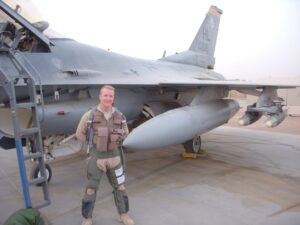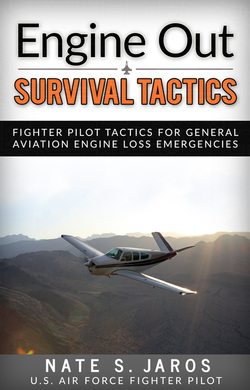 Are you prepared to handle an engine loss event in your single engine piston aircraft?
Are you prepared to handle an engine loss event in your single engine piston aircraft?
What is your best glide speed, best glide ratio? Do you know where High Key is?
Lots of questions…do you have answers?
Engine Out Survival Tactics is a book for single engine General Aviation pilots, Certified Flight Instructors, and Flight Schools and will teach you advanced engine loss recovery techniques from the unique perspective of a US Air Force Fighter Pilot and Lockheed Test Pilot. This book will take your knowledge and preparedness to the next level!
With advanced discussions on glide ratios, emergency procedures, critical action checklist steps, landing site selection, the gear up or down debate, and military style overhead and straight-in engine out landing procedures, Engine Out Survival Tactics takes your knowledge and training to a higher level that has never before been taught to General Aviation pilots. There is also an excellent overview of engine loss training and options when in Instrument Meteorological Conditions as well ways to use your modern engine monitor to identify a pending engine loss event.
Engine Out Survival Tactics also includes real life engine loss stories from real pilots. Hear what happened to them, and how they survived!
If you are uncertain about your ability to safely recover your single engine aircraft, in any situation, and SURVIVE…then this is the book for you.
Learn the tactics that can save your life!
Now available for download on Amazon, Apple iBooks, Nook and more!
Why did you write this book?
I have always been an avid supporter of GA and enjoyed flying in light aircraft for most of my professional USAF career. As I became older and more proficient in the USAF as an F-16 pilot, I began to realize just how different GA emergency training is from our military emergency training. In the military we have access to advanced simulators, and some of the finest equipment and technology that money can buy. We also focus monthly and on checkrides, on emergency procedures and work on them until we know them in our sleep. I began to see a huge disparity between the two kinds of flying, with respect to emergency preparedness.
 He was an experienced fellow, but had no formal training or military training. I was discussing High Key and a little about doing engine out practice in the F-16. After about 10 minutes of discussion and joking about our flying he asked me…”What’s High Key?” Right then it dawned on me.
He was an experienced fellow, but had no formal training or military training. I was discussing High Key and a little about doing engine out practice in the F-16. After about 10 minutes of discussion and joking about our flying he asked me…”What’s High Key?” Right then it dawned on me.
